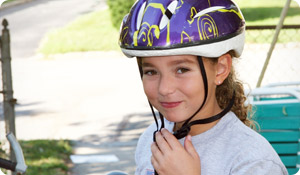
Arthritis among children can take many forms but the most common type is juvenile rheumatoid arthritis. Young patients diagnosed with this, or with the host of other types of arthritis that exist, often experience swelling, tenderness and pain in one or more joints, making it difficult to move, especially in the mornings. But moving can actually stretch and strengthen the joints, allowing your child to feel better.
Don’t Let Symptoms Get in the Way
While stiffness can be a hallmark sign of juvenile arthritis, it doesn’t have to stop your child from engaging in the sports and other activities he or she enjoys. In fact, doctors stress the importance of keeping young people with arthritis active, both when the condition is flaring up and also when the symptoms are in remission. Ideally, a professional physical therapist or other expert can work with your child to help design an individualized exercise plan that will be safe and effective and to suggest specific exercises that can be done at home that will help to keep joints as flexible as possible.
Safe Activities
Since every child has different needs, it is best to get your doctor’s advice before your child tackles anything new, but some of the types of exercise that experts recommend as good activity choices include:
- Swimming
- Biking
- Walking
- Playing tennis
The key is to find low-impact activities that won’t put too much stress on the joints and won’t overtax your child’s body. Some children with arthritis will also be able to engage in a variety of sports as long as their conditions are well under control. Just keep in mind that activities that involve weight bearing exercises, jogging or jumping generally are not advised.
Other Recommendations
Rheumatologists remind parents that while staying active can be difficult, especially when your child is uncomfortable, it often helps when the whole family makes activity a regular part of the day and offers frequent support and encouragement.
Other things you can do to help your child feel his or her best:
- Encourage a balanced diet
- Ensure your child maintains a healthy weight
- Promote adequate sleep
- Monitor medication compliance
- Teach stress management techniques
- Help your child to lead as normal a life as possible





